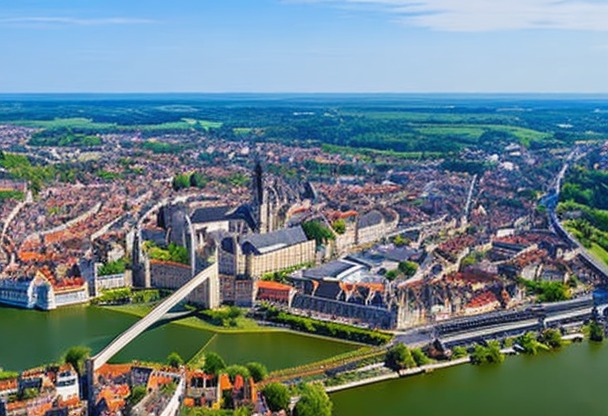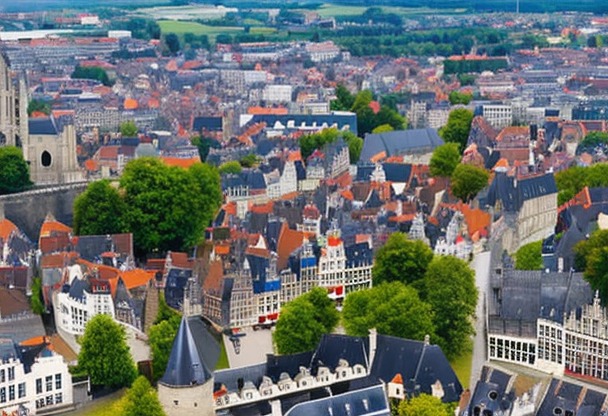Best time to travel to Belgium
Choosing the right period for your trip to Belgium can make all the difference. It's important to consider weather elements, seasonal events and peak tourist periods to maximize your travel experience.

Location
Climate
When to go to Belgium: climate and seasons
Located in the heart of Europe, Belgium enjoys a temperate oceanic climate, with relatively mild winters and cool summers. Precipitation is fairly frequent throughout the year, but is generally moderate. Here's an overview of the different seasons and climates in Belgium:- Spring (March to May) Summer: the ideal season for nature lovers, as gardens and parks are in full bloom. Temperatures average between 10 and 15°C.
- Summer (June to August) Summer: temperatures rise slightly, fluctuating between 18 and 23°C, with peaks of up to 30°C on certain days. This is the most pleasant time to visit Belgium, but also the most popular with tourists.
- Autumn (September to November) Autumn: temperatures begin to drop, hovering between 10 and 15°C on average. Autumn colors enhance the landscape and the atmosphere is ideal for forest walks.
- Winter (December to February) The climate becomes cooler and wetter, with temperatures ranging from 0 to 5°C on average. Snow is infrequent, but can sometimes cover the Belgian Ardennes.
Public holidays and long weekends in Belgium
During the year, there are several public holidays and long weekends in Belgium. During these periods, some tourist attractions may be closed or more crowded. Here's an overview of the main Belgian public holidays:- January 1 - New Year's Day
- Easter Monday (date varies)
- May 1st - Labour Day
- Ascension (date varies)
- Whit Monday (date varies)
- July 21 - Belgian national holiday
- August 15 - Assumption
- November 1 - All Saints' Day
- November 11 - Armistice
- December 25 - Christmas
Major cultural events in Belgium
Throughout the year, Belgium offers a multitude of cultural and festive events that can make your stay even more rewarding. Here are some of the main events not to be missed:Carnivals and spring festivities
In February or March, the Binche Carnival is a must-attend event, with its traditional costumes, music and folk dances. Other towns and regions also organize their own carnivals, such as those of Malmedy and Aalst. In April, Bruges celebrates the Procession of the Holy Blood, a historic parade retracing the history of the city and its sacred relic.Music and street arts festivals
Numerous music and street arts festivals take place in Belgium during the summer months. Among the most popular are Rock Werchter and Tomorrowland, which attract thousands of visitors every year.Traditional festivals and Christmas markets
In December, Christmas markets are a veritable institution in Belgium, with their wooden chalets, twinkling lights and local culinary specialities. The cities of Brussels, Antwerp, Ghent and Liège in particular host markets renowned for their warm, friendly atmosphere. Other traditional festivals, such as the Ducasse d'Ath or the Grape Festival in Overijse, are also celebrated in different parts of the country throughout the year.Insurance
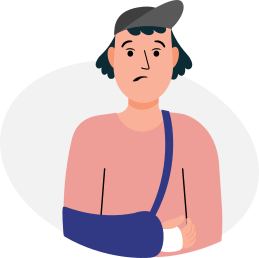
Your credit card does not cover you in all situations, that is whyIt is essential to take out insurance before you leave to avoid any unpleasant surprises. If you need to see a doctor or be hospitalized, in some countries, medical costs are very high and you will then find yourself having to pay several thousand euros.
Our partner Chapka Insurance proposes the contract CAP ASSISTANCE 24/24 with many essential guarantees.
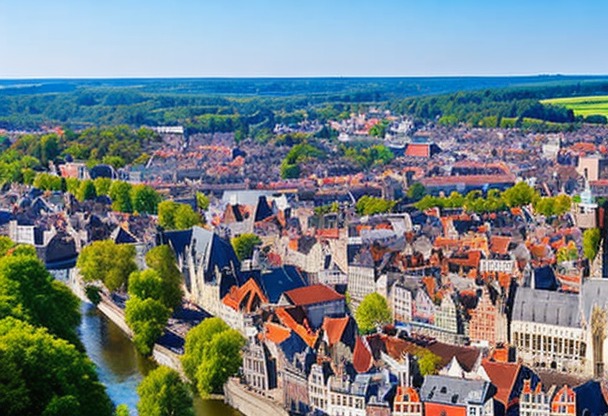
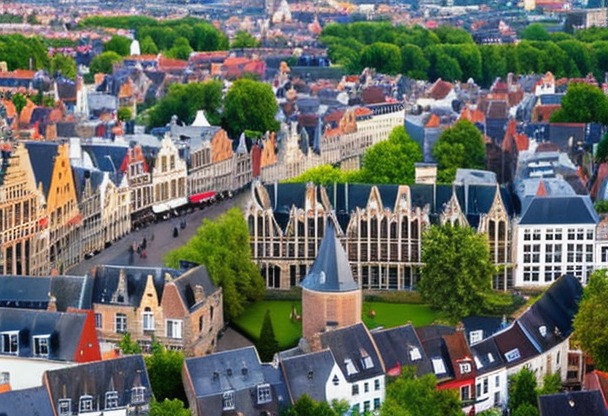
Flights

Your flight has been cancelled or delayed ?
You may be eligible for a compensation of up to €600 ! For this, lawyers are responsible for handling your claim with the airline and are only paid when the reimbursement is effective.
In conclusion, no financial risk for you, only advantages!
Immigration figures for Belgium: a steady rise
According to data published by StatbelAccording to the Belgian Statistics Office, the number of foreigners settling in Belgium has been rising steadily for several years. In fact, between 2010 and 2020, this number rose by almost 25%, from 1.1 million to over 1.4 million. The main reasons for this increase are Belgium's strategic geographical location and its attractive quality of life for expatriates.Composition of immigrant nationalities
Most of the people who immigrated to Belgium during this period were European nationals. However, it is also interesting to note the growing presence of people from countries outside the European Union, such as those seeking international protection. Here are the main nationalities represented in Belgium:- France : The geographical and cultural proximity between the two countries largely explains this strong French presence.
- Netherlands : Dutch citizens also settle in Belgium in large numbers, particularly for professional reasons.
- Romania : Romania has one of the highest emigration rates in the EU, with many of its nationals coming to work or study in Belgium.
- Morocco : the historical and economic relations between Morocco and Belgium encourage trade between the two countries.
- Afghanistan : In recent years, Belgium has welcomed many Afghan refugees fleeing conflicts in their homeland.
The most popular visas in Belgium: residence, work and study
Belgium offers various types of visa enabling foreigners to come and stay here temporarily or permanently. Among these, here are the most popular visas:Short-stay visa (Schengen visa)
The Schengen visa allows nationals of non-Schengen countries to travel freely within the Schengen area for a maximum of 90 days within a 180-day period. This is the most popular type of visa in Belgium, mainly for tourist or family stays.Long-stay visa (visa D)
This visa is intended for people wishing to stay in Belgium for more than three months to work, study or join a family member. Application for this visa generally implies the need to obtain a work, study or family reunion permit.Residence permits for applicants for international protection
People fleeing conflict, persecution or serious human rights violations can apply for international protection in Belgium. If their application is accepted, they receive a temporary or permanent residence permit, depending on their situation.International tourism in Belgium: figures and trends
Belgium attracts many foreign visitors every year thanks to its historical, cultural and gastronomic heritage. According to data published by the World Tourism Organization, Belgium welcomed around 9 million international tourists in 2019before the COVID-19 pandemic overturns these figures in 2020.Profile of international tourists in Belgium
International visitors to Belgium mainly come from neighbouring countries, such as Belgium, France and Germany. Francethe The Netherlands, THE United Kingdom and theGermany. However, there has also been an increase in the number of tourists from other parts of the world, notably Asia and America.The most popular tourist attractions
Belgium offers a wide range of sights and activities for travelers. Among the must-sees are :- Brussels : the Belgian capital is famous for its Grand-Place, museums, Atomium and numerous parks and gardens.
- Bruges : this medieval town is often dubbed the "Venice of the North" for its canals and picturesque architecture.
- Antwerp : the port metropolis is famous for its diamond dealers, fashion boutiques and the Royal Museum of Fine Arts.
- Ghent: With its castle, Gothic churches and student atmosphere, Ghent is a popular destination for history and culture lovers.
- The Belgian coast : 65 km long, it offers numerous seaside resorts ideal for beach and water sports.
